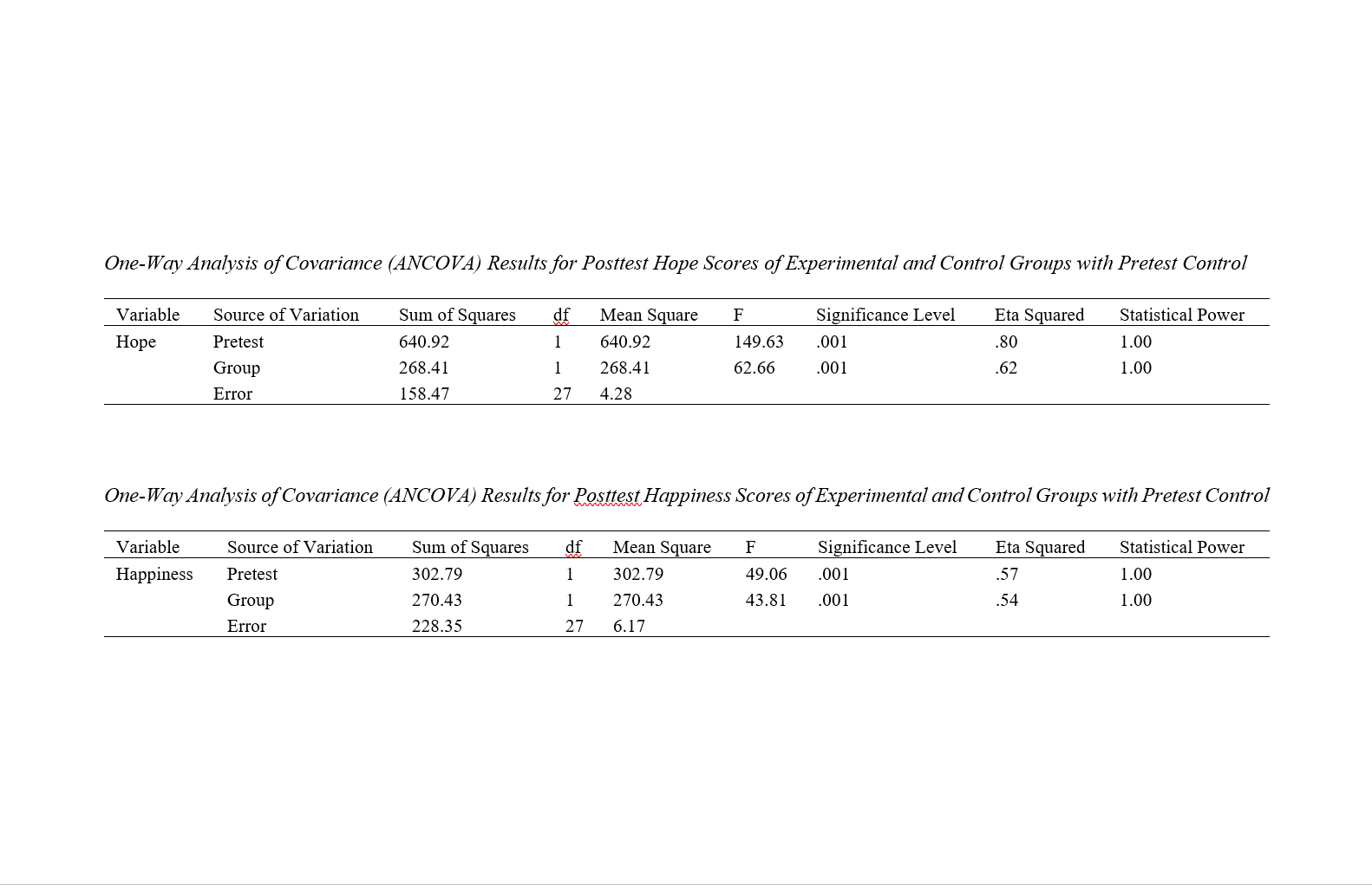The Effectiveness of Acceptance and Commitment-Based Group Therapy on Hope and Happiness in Women with Breast Cancer
Keywords:
Acceptance and commitment-based group therapy, hope, happiness, breast cancerAbstract
Objective: This study aimed to examine the effectiveness of acceptance and commitment-based group therapy on hope and happiness in women diagnosed with breast cancer.
Methods: The research was applied and experimental in nature. The design was a quasi-experimental pretest-posttest with a control group. The population consisted of all women diagnosed with breast cancer in Borujerd city, from which 30 participants were selected through non-random convenient sampling using Snyder's Hope Scale (1991) and the Oxford Happiness Questionnaire (1990) based on inclusion and exclusion criteria, and were randomly assigned to two groups: the experimental group receiving acceptance and commitment therapy (each group consisting of 15 members) and the control group. The experimental group underwent eight 90-minute sessions of acceptance and commitment therapy, as described by Hayes et al. (2006), once a week, while the control group received no intervention. After the training period, the questionnaires were administered again in both groups at the post-test stage. Data analysis in this study was performed using analysis of covariance.
Findings: The results showed that acceptance and commitment-based group therapy significantly improved hope (F = 62.66, p = 0.001) and happiness (F = 43.81, p = 0.001) in women with breast cancer.
Conclusion: Based on the findings of this research, it can be concluded that acceptance and commitment-based group therapy enhances hope and happiness in women with breast cancer; therefore, it can be used as an effective intervention method to foster and increase hope and happiness in these women.
Downloads

Downloads
Additional Files
Published
Issue
Section
License

This work is licensed under a Creative Commons Attribution-NonCommercial 4.0 International License.




















